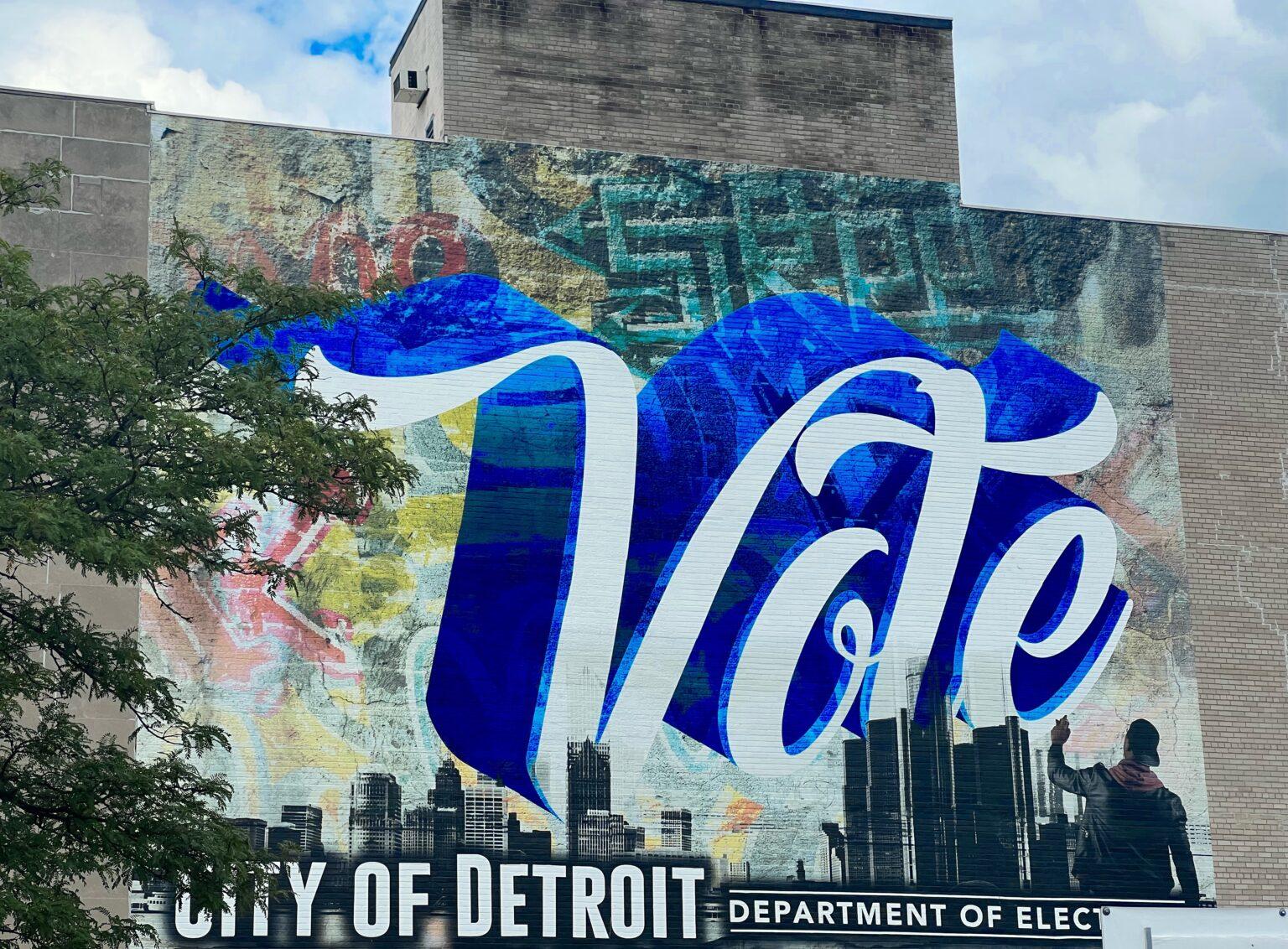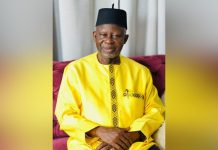Africa-Press – Gambia. Charles Diggs Jr. became the first African American to serve on Capitol Hill in Michigan. He was first elected in 1954.
Since then, at least one African American has represented in Congress a portion of Detroit — the largest majority-Black city in the nation — with civil rights leaders becoming a powerful force in the Democratic Party in the ensuing decades.But that is set to change in 2023.
In last week’s Democratic primary, Black candidates failed to win either of the two congressional districts representing Detroit, the 12th and the 13th. U.S. Rep. Rashida Tlaib (D-Detroit), who is Palestinian American, triumped in the 12th and state Rep. Shri Thanedar (D-Detroit), a businessman who immigrated from India, beat out a crowded field in the open 13th.
Because both are safe Democratic seats, both Tlaib and Thanedar are expected to win in the Nov. 8 general election. The Advance has talked with several sources who are discussing the possibility of a write-in Black candidate in the 13th Congressional District, but no plans have been announced.
Now African-American leaders are grappling with the loss of African-American representation for Detroit, both in Congress and the Legislature, and what this means.
“We gave up power on Tuesday,” said the Rev. Wendell Anthony, pastor of Fellowship Chapel in Detroit and president of the nonpartisan NAACP. The church’s political arm, Fannie Lou Hamer PAC, supported state Sen. Adam Hollier (D-Detroit) in the 13th.
At the same time, leaders are trying to figure out what happened, with some calling out the new redistricting maps, low voter turnout and crowded fields as factors.
Some of the roots of last week’s election go back to a 2018 constitutional amendment voters passed taking the power away from the Legislature to draw new legislative and congressional lines every 10 years and create an independent redistricting commission.
Michigan lost a congressional seat due to stagnant population after the 2020 census. And the panel was heavily criticized by Black leaders for drawing districts they said diluted African-American representation in Detroit and violated the Voting Rights Act. However, their case was rejected by the Michigan Supreme Court earlier this year.
U.S. Rep. Brenda Lawrence (D-Southfield), the only African American in Michigan’s congressional delegation, sent political shockwaves in January when she announced her retirement. She currently represents the 14th District.
The four-term federal legislator and first Black mayor of Southfield, a Detroit suburb, slammed the redistricting process in a wide-ranging interview with the Advance last week. She noted that the strongly Democratic Detroit-area districts were not drawn to be minority-majority , and said the state’s reapportionment process did not serve Black people in Southeast Michigan well.
“People are saying that we haven’t been without a Black representative [in Congress] in 70 years, but we’ve never not had the majority in the two districts,” said Lawrence. “We gotta fight those lines.” Shortly after Lawrence’s announcement, Tlaib, who currently is the congresswoman for the neighboring 13th District, announced she would run in the new 12th District.
Tlaib is a former state House member who was born and raised in Detroit and is part of the “Squad,” a group of progressive women of color in Congress.
She was expected to win last week over three African American Democratic candidates in the race: Lathrup Village Mayor Kelly Garrett; Detroit City Clerk Janice Winfrey; and former state House member Shanelle Jackson of Detroit.
She’s done it before. In 2018, Tlaib defeated a crowded field to secure a full term to replace U.S. Rep. John Conyers, the “dean” of the Congressional Black Caucus who resigned from office in 2017 amid a sexual harrasment scandal. Tlaib triumphed over Jackson; then-Detroit City Council President Brenda Jones; state Rep. Coleman Young; state Sen. Ian Conyers, a Detroit Democrat and nephew of John Conyers; and Westland Mayor Bill Wild.
In 2020, Tlaib won re-election to a second term by defeating Jones again.
Tlaib spokesperson Denzel McCampell told the Advance that she “believes that representation on all levels of government should reflect our communities. That representation not only means skin color, but also having someone who will fight for policies that impact communities, especially the Black community.”
Campbell went on to note that Tlaib “has been elected three times by a district where Black people make up the largest racial group, has spent four years representing a majority Black district, and has approached that task humbly, knowing she doesn’t have the specific lens of a Black American but serves with an open door and open mind, actively seeking input and partnership with Black residents, leaders, organizations and stakeholders.”Meanwhile, the race for the new 13th District race was wide open with Lawrence retiring and Tlaib seeking the nearby 12th seat. The 13th District includes a portion of Detroit, as well as other Wayne County communities such as Highland Park, Hamtramck, Harper Woods, the Grosse Pointes, Allen Park, River Rouge, Melvindale and Taylor.
And it’s Thanedar’s win there that has caused the most soul-searching among African-American leaders.
Thanedar, a millionaire businessman, self-funded his congressional campaign with more than $8.1 million and bought a huge amount of television ads.
That came after he unsuccessfully ran for governor in 2018, losing to now-Gov. Gretchen Whitmer after pouring $10 million in that race. He moved to Detroit in 2019 and quickly ran for a state House seat in 2020, which he won.
He faced eight Black candidates in the 13th District race: Hollier; Portia Roberson, a Black Detroit resident who is president and CEO of Focus: HOPE; former state Rep. Sherry Gay-Dagnogo; Michael Griffie, an attorney and official with Teach America-Detroit, an education-focused nonprofit; Sharon McPhail, a former Detroit City Council member and assistant Wayne County prosecutor; John Conyers III, a son of the former U.S. House member; and Sam Riddle, a Detroit political consultant; and businesswoman Laura Rutledge.
Hollier finished second and Roberson was third.
Mario Morrow, a veteran Detroit political consultant, said several African Americans running for the seat helped Thanedar, something Lawrence highlighted, as well.
“The other candidates did not get people out to the polls,” said Morrow. “It was incumbent on them to get their name out there. The more candidates the merrier it was for Shri,” said Morrow.
Morrow also said that because Thanedar “spent a ton of money” and was on the ballot for governor in 2018 and for a state House seat in 2020 he had name identification that his opponents did not.
“This congressional primary race was interesting,” said Afro-Latina state Sen. Erika Geiss (D-Taylor), who endorsed Hollier. “Shri flooded our mailboxes every day, sometimes with multiple pieces in the same day.”
Hollier told the Advance last week that the redistricting process did play a role in the race, but he ultimately took the blame.
“I own the loss of Black elected power and the best use of any efforts now are to ensure we gain some influence by electing Kyra Harris Bolden [to the Michigan Supreme Court.]”
If elected, Bolden, a Democratic state House member, would be the first Black woman to serve on the state high court.
Keith Williams, chair of the Michigan Democratic Party Black Caucus, backed McPhail for the 13th District seat and has criticized Thanedar’s candidacy throughout the campaign.
“I want our power back,” Williams said last week. Lawrence was blunt, calling Detroit voter turnout “horrible” in the 13th District primary while blaming “voter complacency.” Voter turnout in Detroit, which has a 79% African-American population, was 15%. In contrast, voter turnout in the metro Detroit suburb of Taylor was 21%. Taylor is 18% Black, according to U.S. Census data.
“The voter turnout was horrible. Black people showed up for [President Joe] Biden [in 2020] so you know the power of your vote,” she said.
But as far as voter turnout on Tuesday, Lawrence was candid.
“We are standing on blood-stained streets of forefathers who died for the right to vote. What’s troubling to me is that we didn’t turn out to vote,” she said.
Overall, Thanedar secured 22,302 votes to Hollier’s 18,513 and Roberson’s 13,312 — a 3,789-vote advantage.
In Detroit, which is 79% Black, Thanedar and Hollier earned 10,248 and 10,170 votes, respectively. Roberson was third with 7,185. No other candidate had more than Gay-Dagnogo’s 4,211.
Jonathan Kinloch, chair of the 13th Congressional District Democratic Party and a Wayne County commissioner, argued that the race was won Downriver. In Allen Park, for example, Thanedar captured 1,299 votes to Hollier’s 657 and Roberson’s 515. In Taylor, Thanedar secured 1,911 votes to Hollier’s 844 and Roberson’s 564.
“Regarding Black candidates, if you combine Adam’s and Portia’s totals, they outpace Shri’s by 1408 to his 1191,” said Geiss. “I think had either been the only one in it, they would have beaten Shri. Both were strong candidates.” Lawrence and Kinloch backed Portia Roberson, who leads Focus: HOPE, a social service nonprofit. Hollier sported big endorsements from Detroit Mayor Mike Duggan, Wayne County Executive Warren Evans, as well as financial backing from the American Israel Public Affairs Committee (AIPAC) — which was criticized by some progressive activists.
But the two don’t necessarily see eye-to-eye on the results.
Kinloch argues that Lawrence bears some responsibility for Thanedar’s win. He said Lawrence could have better helped Roberson with fundraising and campaigning in areas of the district outside of Detroit, Roberson’s hometown.
“She is culpable,” said Kinloch about Lawrence. “She didn’t show up and show out.”
Lawrence responded she hosted a Washington, D.C., fundraiser and voiced robocalls for Roberson.
Rick Blocker is chair of the neighboring 14th Congressional District Democratic Party that includes a portion of Detroit and all of the Grosse Pointes and did not endorse a candidate in the new 13th. He defended Lawrence.
“What else did people want [Lawrence] to do?” said Blocker.
Morrow said he believes that Lawrence did help Roberson, as did Evans and Duggan helped Hollier.
Meanwhile, Lawrence said she wants to know more about Thanedar’s agenda.
“I’m not attacking Shri. I don’t know him,” said Lawrence about Thanedar in a wide-ranging 35-minute interview with the Advance. “He needs to get to know us. Not just have a cookout. I don’t need a catchy slogan but I need to see the work.”
For his part, Thanedar told the Advance last week that he has built a “bond and trust” with African Americans who live in his state House district, which includes a portion of Northwest and Northeast Detroit.
He has sponsored a state House bill that would give the Detroit Public Schools Community District (DPSCD) $94.4 million after a 2016 lawsuit leveled against the school district by several former students was dismissed by a federal court. Whitmer in 2020 settled the landmark suit and agreed to propose legislation that would give DPSCD at least $94.4 million for literacy programs,
The lawmaker said that he is looking to achieve a bipartisan response to calls for reparations for African Americans for the impact of slavery. People want help with childcare, as well as relief from high gasoline and food prices, he said.
“All people want is for more things to get fixed,” he told the Advance.
Thanedar he spoke with both Hollier and Roberson and he looks to strengthen “bond and trust” with African Americans in the 13th Congressional District.
If elected in November, he added he will seek to become a member of the Congressional Black Caucus. Lawrence currently serves as second vice-chair. Whitmer: ‘I think representation is very important’
Lawrence pointed out that the Congressional Black Caucus is growing — and the number of African American Republicans in Congress could grow, too.
Three Black Republicans won their nominations for Congress in Michigan last week.
Analysts expect John James, a veteran and businessman who unsuccessfully ran for U.S. Senate twice, to have the best chance to win of the three candidates. He defeated opponent Tony Marcinkewciz in the Republican primary in the new 10th Congressional District in Southeast Michigan and faces Democratic former Judge Carl Marlinga in the upcoming general election.
In Michigan’s 3rd District, Republican U.S. Rep. Peter Meijer of Grand Rapids, who is white, was defeated Tuesday by John Gibbs, who is Black previously worked in the Department of Housing and Urban Development during the Trump administration.
Gibbs is up against Democrat Hillary Scholten, an immigration, in a West Michigan district that has been redrawn and leans Democratic now.Martell Bivings, an African-American Republican, will face Thanedar in the 13th District general election, but faces long odds in the blue district.
Wayne Bradley, a Black Republican leader who was raised in Detroit, believes that Black GOP members can represent African Americans in Michigan. He said that Bivings, a Motor City native and Howard University graduate, is “more than capable” of representing the district.
“If you took that young man and put him in as a Democrat, he would be considered the future of their party,” said Bradley.
Bivings also has worked as a staffer for Gay-Dagnogo and Detroit City Council member Scott Benson.
“I’m prepared to do this,” Bivings told the Advance. “I just got to get out there and show the people that I’m the best person to work for them.”
There likely also will be notable changes in representation down-ballot, as well.
While the congressional maps have drawn high-profile criticism, Black leaders also have blasted new districts for state House and Senate for failing to ensure Detroit and African Americans have adequate representation.
State Sen. Marshall Bullock (D-Detroit) is chair of the Michigan Legislative Black Caucus. He told the Advance this week that fewer African Americans will be in the state House and Senate beginning in 2023 and predicted that African-American membership will continue to decrease in the 2024 political cycle“You will see minority representation dwindle,” said Bullock, who won’t be returning to Lansing next term.
The longtime African American lawmaker lost the primary last week in the 8th Senate District to state Sen. Mallory McMorrow (D-Royal Oak.), who is white. She is expected to win the general election in the Democratic-favored seat.
The issue is on the radar of top Democratic leaders.
Gov. Gretchen Whitmer told the Advance at a Detroit campaign event last week that she’s “concerned” about the decreasing number of Black Democrats who will serve in the state House, state Senate and Congress next year. Her running mate, Detroiter Garlin Gilchrist, is the first African-American lieutenant governor in Michigan history.
“I think representation is very important,” said Whitmer. “I have the most diverse cabinet in Michigan history. When we empower people with different perspectives and lived experiences, we have better decision making.”
For More News And Analysis About Gambia Follow Africa-Press






